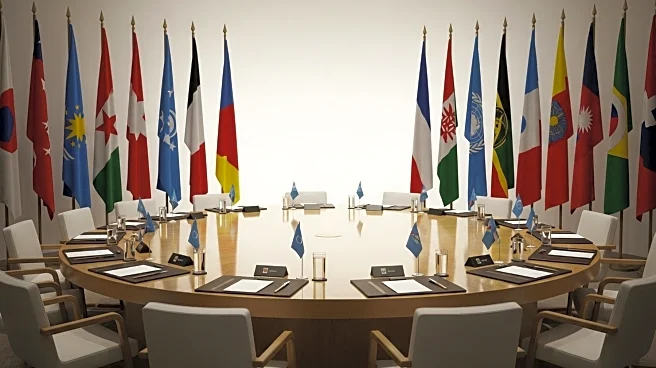What's Happening?
President Trump is set to engage in discussions with Arab leaders regarding the ongoing Gaza conflict during the United Nations General Assembly. This meeting comes amid significant developments, including Israel's recent strike on Hamas leadership in Doha and ongoing disarmament talks with Syria. The discussions are expected to focus on the next steps in addressing the conflict, with participation from leaders of Gulf states, Jordan, Turkey, and Syria. The talks are also occurring in the context of growing recognition of Palestinian statehood, which adds complexity to the diplomatic landscape.
Why It's Important?
The discussions led by President Trump at the UN General Assembly are crucial as they may influence the geopolitical dynamics in the Middle East. The involvement of key regional players such as Gulf states, Jordan, Turkey, and Syria highlights the importance of these talks in potentially shaping future peace efforts and regional stability. The recognition of Palestinian statehood and the recent military actions by Israel further complicate the situation, making diplomatic engagement essential to prevent escalation and foster dialogue. The outcomes of these discussions could have significant implications for U.S. foreign policy and its role in Middle Eastern affairs.
What's Next?
The next steps following President Trump's discussions with Arab leaders may include further diplomatic initiatives aimed at de-escalating tensions in Gaza and advancing peace talks. Stakeholders such as the United Nations and regional governments will likely continue to play a pivotal role in facilitating dialogue and negotiations. The international community will be closely monitoring these developments, as any agreements or resolutions could impact regional alliances and the broader geopolitical landscape.









